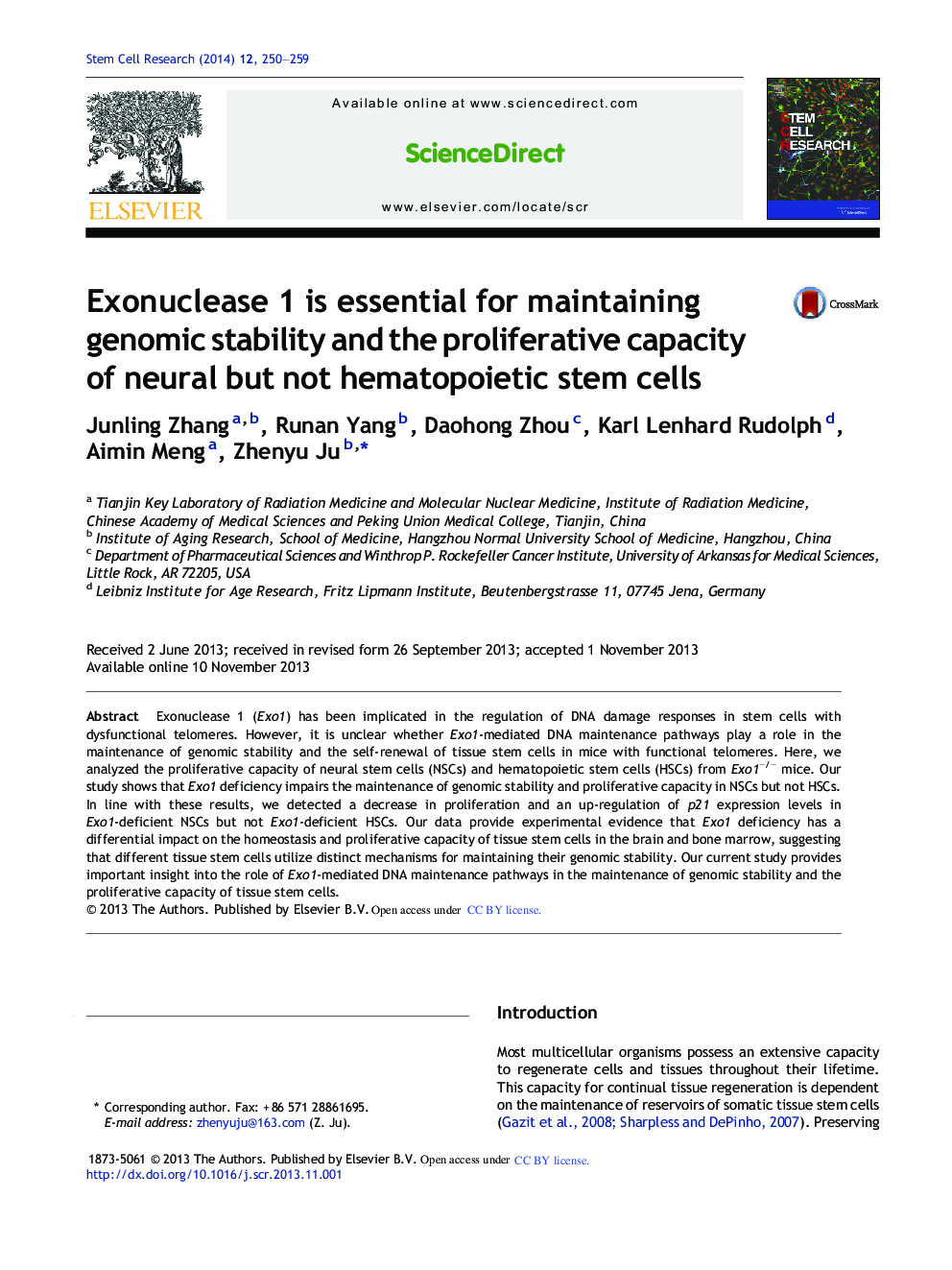| Article ID | Journal | Published Year | Pages | File Type |
|---|---|---|---|---|
| 2094592 | Stem Cell Research | 2014 | 10 Pages |
•Exo1 deficiency impairs the homeostasis and self-renewal of NSCs but not HSCs.•Exo1 deficiency impairs the maintenance of genomic stability in NSCs but not HSCs.•We reinforce the role of DNA mismatch repair in homeostasis of tissue stem cells.
Exonuclease 1 (Exo1) has been implicated in the regulation of DNA damage responses in stem cells with dysfunctional telomeres. However, it is unclear whether Exo1-mediated DNA maintenance pathways play a role in the maintenance of genomic stability and the self-renewal of tissue stem cells in mice with functional telomeres. Here, we analyzed the proliferative capacity of neural stem cells (NSCs) and hematopoietic stem cells (HSCs) from Exo1−/− mice. Our study shows that Exo1 deficiency impairs the maintenance of genomic stability and proliferative capacity in NSCs but not HSCs. In line with these results, we detected a decrease in proliferation and an up-regulation of p21 expression levels in Exo1-deficient NSCs but not Exo1-deficient HSCs. Our data provide experimental evidence that Exo1 deficiency has a differential impact on the homeostasis and proliferative capacity of tissue stem cells in the brain and bone marrow, suggesting that different tissue stem cells utilize distinct mechanisms for maintaining their genomic stability. Our current study provides important insight into the role of Exo1-mediated DNA maintenance pathways in the maintenance of genomic stability and the proliferative capacity of tissue stem cells.
